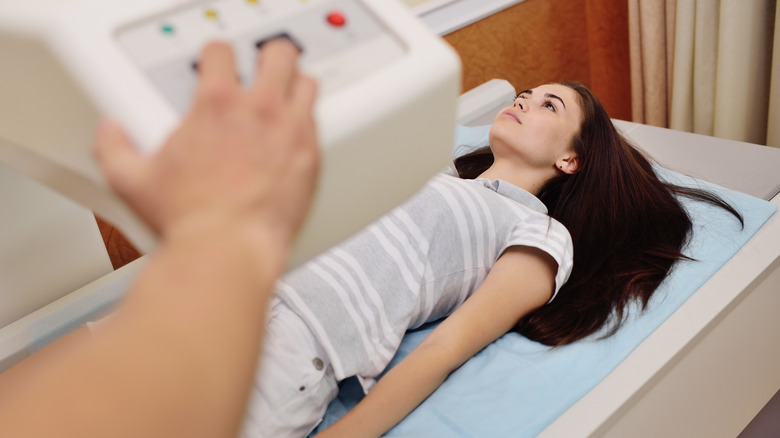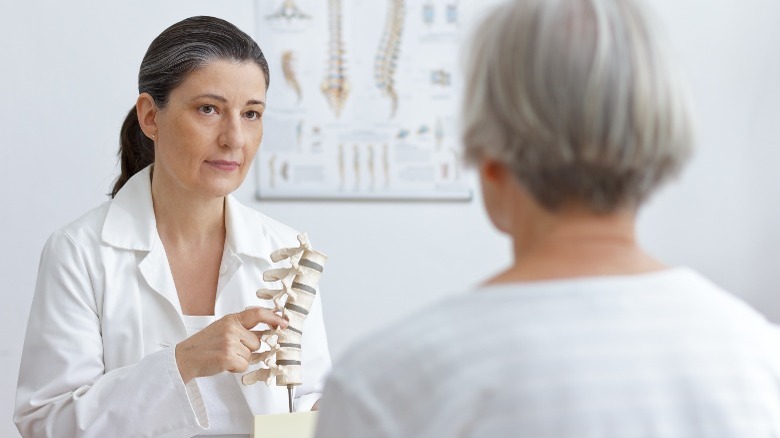What To Expect When Getting A Bone Density Test
According to the experts at New York State Department of Health, more than half of Americans over the age of 50 are at risk of osteoporosis. Osteoporosis is a disease that weakens your bones and makes them more likely to fracture and break. Osteoporosis is often called the "silent disease" because you are typically not aware of your bones weakening or thinning — until you break a bone.
The spine is the most common area where you will experience a break if you have osteoporosis. However, if you were to break a hip due to osteoporosis, this can severely reduce your quality of life. People 70 and over are most likely to break a hip due to osteoporosis, which may lead them to become dependent on others for basic activities such as getting dressed, taking a bath or shower, and shopping, notes the New York State Department of Health.
It is normal for your bone mass to decrease over time; however, osteoporosis is not a normal part of aging. If you suspect you have osteoporosis, especially if you are 65 or older, your doctor can confirm this through a bone density test (via Johns Hopkins Medicine).
How a bone density test works
According to the experts at the Mayo Clinic, if you need a bone density test, the good news is that it is an easy test that does not require much preparation. Just let your doctor know if you had any recent scans during which you were injected with contrast material, as this could mitigate the quality of your test. Also, do not consume any calcium supplements within 24 hours of the test.
If you are getting tested at a hospital, expect to lay down on a padded platform where a mechanical arm conducts a full body scan involving a very small amount of radiation. This will likely take between 10 and 30 minutes, according to Mayo Clinic. If you are getting tested at a health fair, the health practitioner will likely use a portable device to measure the bone density in your fingers, heels, or wrists.
The results are measured in what is known as a T-score. A normal T-score is a -1 or above. If your T-score is below -2.5, this is a strong indication that you have osteoporosis, notes Mayo Clinic.
The good news is that there are measures you can take, even when you're young, to help maintain bone health and prevent osteoporosis down the road. For one, make sure you get your recommended daily servings of calcium, vitamin D, potassium, and protein. Also, refrain from smoking and reduce your caffeine and alcohol intake (via Johns Hopkins Medicine).


